- Home
- Elizabeth Gaskell
Curious, if True: Strange Tales Elizabeth Cleghorn Gaskell Page 3
Curious, if True: Strange Tales Elizabeth Cleghorn Gaskell Read online
Page 3
One fearful night, just after the New Year had come in, when the snow was lying thick and deep; and the flakes were still falling—fast enough to blind any one who might be out and abroad—there was a great and violent noise heard, and the old lord's voice above all, cursing and swearing awfully, and the cries of a little child, and the proud defiance of a fierce woman, and the sound of a blow, and a dead stillness, and moans and wailings dying away on the hill-side! Then the old lord summoned all his servants, and told them, with terrible oaths, and words more terrible, that his daughter had disgraced herself, and that he had turned her out of doors—her, and her child—and that if ever they gave her help, or food, or shelter, he prayed that they might never enter heaven. And, all the while, Miss Grace stood by him, white and still as any stone; and, when he had ended, she heaved a great sigh, as much as to say her work was done, and her end was accomplished. But the old lord never touched his organ again, and died within the year; and no wonder! for, on the morrow of that wild and fearful night, the shepherds, coming down the Fell side, found Miss Maude sitting, all crazy and smiling, under the holly-trees, nursing a dead child, with a terrible mark on its right shoulder. 'But that was not what killed it,' said Dorothy: 'it was the frost and the cold. Every wild creature was in its hole, and every beast in its fold, while the child and its mother were turned out to wander on the Fells! And now you know all! and I wonder if you are less frightened now?'
I was more frightened than ever; but I said I was not. I wished Miss Rosamond and myself well out of that dreadful house for ever; but I would not leave her, and I dared not take her away. But oh, how I watched her, and guarded her! We bolted the doors, and shut the window-shutters fast, an hour or more before dark, rather than leave them open five minutes too late. But my little lady still heard the weird child crying and mourning; and not all we could do or say could keep her from wanting to go to her, and let her in from the cruel wind and the snow. All this time I kept away from Miss Furnivall and Mrs. Stark, as much as ever I could; for I feared them—I knew no good could be about them, with their grey, hard faces, and their dreamy eyes, looking back into the ghastly years that were gone. But, even in my fear, I had a kind of pity for Miss Furnivall, at least. Those gone down to the pit can hardly have a more hopeless look than that which was ever on her face. At last I even got so sorry for her—who never said a word but what was quite forced from her—that I prayed for her; and I taught Miss Rosamond to pray for one who had done a deadly sin; but often when she came to those words, she would listen, and start up from her knees, and say, 'I hear my little girl plaining and crying very sad—oh, let her in, or she will die!'
One night—just after New Year's Day had come at last, and the long winter had taken a turn, as I hoped—I heard the west drawing-room bell ring three times, which was the signal for me. I would not leave Miss Rosamond alone, for all she was asleep—for the old lord had been playing wilder than ever—and I feared lest my darling should waken to hear the spectre child; see her, I knew she could not. I had fastened the windows too well for that. So I took her out of her bed, and wrapped her up in such outer clothes as were most handy, and carried her down to the drawing-room, where the old ladies sat at their tapestry-work as usual. They looked up when I came in, and Mrs. Stark asked, quite astounded, 'Why did I bring Miss Rosamond there, out of her warm bed?' I had begun to whisper, 'Because I was afraid of her being tempted out while I was away, by the wild child in the snow,' when she stopped me short (with a glance at Miss Furnivall), and said Miss Furnivall wanted me to undo some work she had done wrong, and which neither of them could see to unpick. So I laid my pretty dear on the sofa, and sat down on a stool by them, and hardened my heart against them, as I heard the wind rising and howling.
Miss Rosamond slept on sound, for all the wind blew so Miss Furnivall said never a word, nor looked round when the gusts shook the windows. All at once she started up to her full height, and put up one hand, as if to bid us to listen.
'I hear voices!' said she. 'I hear terrible screams—I hear my father's voice!'
Just at that moment my darling wakened with a sudden start: 'My little girl is crying, oh, how she is crying!' and she tried to get up and go to her, but she got her feet entangled in the blanket, and I caught her up; for my flesh had begun to creep at these noises, which they heard while we could catch no sound. In a minute or two the noises came, and gathered fast, and filled our ears; we, too, heard voices and screams, and no longer heard the winter's wind that raged abroad. Mrs. Stark looked at me, and I at her, but we dared not speak. Suddenly Miss Furnivall went towards the door, out into the ante-room, through the west lobby, and opened the door into the great hall. Mrs. Stark followed, and I durst not be left, though my heart almost stopped beating for fear. I wrapped my darling tight in my arms, and went out with them. In the hall the screams were louder than ever; they seemed to come from the east wing—nearer and nearer—close on the other side of the locked-up doors—close behind them. Then I noticed that the great bronze chandelier seemed all alight, though the hall was dim, and that a fire was blazing in the vast hearth-place, though it gave no heat; and I shuddered up with terror, and folded my darling closer to me. But as I did so the east door shook, and she, suddenly struggling to get free from me, cried, 'Hester! I must go. My little girl is there! I hear her; she is coming! Hester, I must go!'
I held her tight with all my strength; with a set will, I held her. If I had died, my hands would have grasped her still, I was so resolved in my mind. Miss Furnivall stood listening, and paid no regard to my darling, who had got down to the ground, and whom I, upon my knees now, was holding with both my arms clasped round her neck; she still striving and crying to get free.
All at once, the east door gave way with a thundering crash, as if torn open in a violent passion, and there came into that broad and mysterious light, the figure of a tall old man, with grey hair and gleaming eyes. He drove before him, with many a relentless gesture of abhorrence, a stern and beautiful woman, with a little child clinging to her dress.
'Oh, Hester! Hester!' cried Miss Rosamond; 'it's the lady! the lady below the holly-trees; and my little girl is with her. Hester! Hester! let me go to her; they are drawing me to them. I feel them—I feel them. I must go!'
Again she was almost convulsed by her efforts to get away; but I held her tighter and tighter, till I feared I should do her a hurt; but rather that than let her go towards those terrible phantoms. They passed along towards the great hall-door, where the winds howled and ravened for their prey; but before they reached that, the lady turned; and I could see that she defied the old man with a fierce and proud defiance; but then she quailed—and then she threw up her arms wildly and piteously to save her child—her little child—from a blow from his uplifted crutch.
And Miss Rosamond was torn as by a power stronger than mine and writhed in my arms, and sobbed (for by this time the poor darling was growing faint).
'They want me to go with them on to the Fells—they are drawing me to them. Oh, my little girl! I would come, but cruel, wicked Hester holds me very tight.' But when she saw the uplifted crutch, she swooned away, and I thanked God for it. Just at this moment—when the tall old man, his hair streaming as in the blast of a furnace, was going to strike the little shrinking child—Miss Furnivall, the old woman by my side, cried out, 'Oh father! father! spare the little innocent child!' But just then I saw—we all saw—another phantom shape itself, and grow clear out of the blue and misty light that filled the hall; we had not seen her till now, for it was another lady who stood by the old man, with a look of relentless hate and triumphant scorn. That figure was very beautiful to look upon, with a soft, white hat drawn down over the proud brows, and a red and curling lip. It was dressed in an open robe of blue satin. I had seen that figure before. It was the likeness of Miss Furnivall in her youth; and the terrible phantoms moved on, regardless of old Miss Furnivall's wild entreaty,—and the uplifted crutch fell on the right shoulder of the little child,
and the younger sister looked on, stony, and deadly serene. But at that moment, the dim lights, and the fire that gave no heat, went out of themselves, and Miss Furnivall lay at our feet stricken down by the palsy—death-stricken.
Yes! she was carried to her bed that night never to rise again. She lay with her face to the wall, muttering low, but muttering always: 'Alas! alas! what is done in youth can never be undone in age! What is done in youth can never be undone in age!'
THE POOR CLARE
Chapter 1
December 12th, 1747.—My life has been strangely bound up with extraordinary incidents, some of which occurred before I had any connection with the principal actors in them, or, indeed, before I even knew of their existence. I suppose, most old men are, like me, more given to looking back upon their own career with a kind of fond interest and affectionate remembrance, than to watching the events—though these may have far more interest for the multitude—immediately passing before their eyes. If this should be the case with the generality of old people, how much more so with me!... If I am to enter upon that strange story connected with poor Lucy, I must begin a long way back. I myself only came to the knowledge of her family history after I knew her; but, to make the tale clear to any one else, I must arrange events in the order in which they occurred—not that in which I became acquainted with them.
There is a great old hall in the north-east of Lancashire, in a part they call the Trough of Bolland, adjoining that other district named Craven. Starkey Manor-House is rather like a number of rooms clustered round a grey, massive, old keep than a regularly-built hall. Indeed, I suppose that the house only consisted of the great tower in the centre, in the days when the Scots made their raids terrible as far south as this; and that after the Stuarts came in, and there was a little more security of property in those parts, the Starkeys of that time added the lower building, which runs, two stories high, all round the base of the keep. There has been a grand garden laid out in my days, on the southern slope near the house; but when I first knew the place, the kitchen-garden at the farm was the only piece of cultivated ground belonging to it. The deer used to come within sight of the drawing-room windows, and might have browsed quite close up to the house if they had not been too wild and shy. Starkey Manor-House itself stood on a projection or peninsula of high land, jutting out from the abrupt hills that form the sides of the Trough of Bolland. These hills were rocky and bleak enough towards their summit; lower down they were clothed with tangled copsewood and green depths of fern, out of which a grey giant of an ancient forest-tree would tower here and there, throwing up its ghastly white branches, as if in imprecation, to the sky. These trees, they told me, were the remnants of that forest which existed in the days of the Heptarchy, and were even then noted as landmarks. No wonder that their upper and more exposed branches were leafless, and that the dead bark had peeled away, from sapless old age.
Not far from the house there were a few cottages, apparently of the same date as the keep, probably built for some retainers of the family, who sought shelter—they and their families and their small flocks and herds—at the hands of their feudal lord. Some of them had pretty much fallen to decay. They were built in a strange fashion. Strong beams had been sunk firm in the ground at the requisite distance, and their other ends had been fastened together, two and two, so as to form the shape of one of those rounded waggon-headed gipsy-tents, only very much larger. The spaces between were filled with mud, stones, osiers, rubbish, mortar—anything to keep out the weather. The fires were made in the centre of these rude dwellings, a hole in the roof forming the only chimney. No Highland hut or Irish cabin could be of rougher construction.
The owner of this property, at the beginning of the present century, was a Mr. Patrick Byrne Starkey. His family had kept to the old faith, and were staunch Roman Catholics, esteeming it even a sin to marry any one of Protestant descent, however willing he or she might have been to embrace the Romish religion. Mr. Patrick Starkey's father had been a follower of James the Second; and, during the disastrous Irish campaign of that monarch, he had fallen in love with an Irish beauty, a Miss Byrne, as zealous for her religion and for the Stuarts as himself. He had returned to Ireland after his escape to France, and married her, bearing her back to the court at St. Germains. But some licence on the part of the disorderly gentlemen who surrounded King James in his exile, had insulted his beautiful wife, and disgusted him; so he removed from St. Germains to Antwerp, whence, in a few years' time, he quietly returned to Starkey Manor-House—some of his Lancashire neighbours having lent their good offices to reconcile him to the powers that were. He was as firm a Roman Catholic as ever, and as staunch an advocate for the Stuarts and the divine right of kings; but his religion almost amounted to asceticism, and the conduct of those with whom he had been brought in such close contact at St. Germains would little bear the inspection of a stern moralist. So he gave his allegiance where he could not give his esteem, and learned to respect sincerely the upright and moral character of one whom he yet regarded as an usurper. King William's government had little need to fear such a one. So he returned, as I have said, with a sobered heart and impoverished fortunes, to his ancestral house, which had fallen sadly to ruin while the owner had been a courtier, a soldier, and an exile. The roads into the Trough of Bolland were little more than cart-ruts; indeed, the way up to the house lay along a ploughed field before you came to the deer-park. Madam, as the country-folk used to call Mrs. Starkey, rode on a pillion behind her husband, holding on to him with a light hand by his leather riding-belt. Little master (he that was afterwards Squire Patrick Byrne Starkey) was held on to his pony by a serving-man. A woman past middle age walked, with a firm and strong step, by the cart that held much of the baggage; and, high up on the mails and boxes, sat a girl of dazzling beauty, perched lightly on the topmost trunk, and swaying herself fearlessly to and fro, as the cart rocked and shook in the heavy roads of late autumn. The girl wore the Antwerp faille, or black Spanish mantle over her head, and altogether her appearance was such that the old cottager, who described the procession to me many years after, said that all the country-folk took her for a foreigner. Some dogs, and the boy who held them in charge, made up the company. They rode silently along, looking with grave, serious eyes at the people, who came out of the scattered cottages to bow or curtsy to the real Squire, 'come back at last,' and gazed after the little procession with gaping wonder, not deadened by the sound of the foreign language in which the few necessary words that passed among them were spoken. One lad, called from his staring by the Squire to come and help about the cart, accompanied them to the Manor-House. He said that when the lady had descended from her pillion, the middle-aged woman whom I have described as walking while the others rode, stepped quickly forward, and taking Madam Starkey (who was of a slight and delicate figure) in her arms, she lifted her over the threshold, and set her down in her husband's house, at the same time uttering a passionate and outlandish blessing. The Squire stood by, smiling gravely at first; but when the words of blessing were pronounced, he took off his fine feathered hat, and bent his head. The girl with the black mantle stepped onward into the shadow of the dark hall, and kissed the lady's hand; and that was all the lad could tell to the group that gathered round him on his return, eager to hear everything, and to know how much the Squire had given him for his services.
From all I could gather, the Manor-House, at the time of the Squire's return, was in the most dilapidated state. The stout grey walls remained firm and entire; but the inner chambers had been used for all kinds of purposes. The great withdrawing-room had been a barn; the state tapestry-chamber had held wool, and so on. But, by-and-by, they were cleared out; and if the Squire had no money to spend on new furniture, he and his wife had the knack of making the best of the old. He was no despicable joiner; she had a kind of grace in whatever she did, and imparted an air of elegant picturesqueness to whatever she touched. Besides, they had brought many rare things from the Continent; perhaps I should ra
ther say, things that were rare in that part of England—carvings, and crosses, and beautiful pictures. And then, again, wood was plentiful in the Trough of Bolland, and great log-fires danced and glittered in all the dark, old rooms, and gave a look of home and comfort to everything.

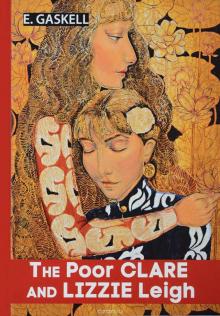 Lizzie Leigh
Lizzie Leigh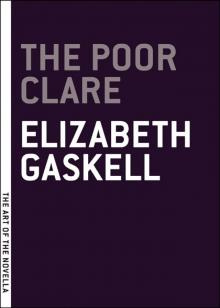 The Poor Clare
The Poor Clare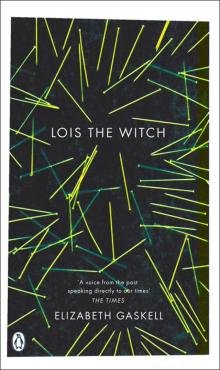 Lois the Witch
Lois the Witch North and South
North and South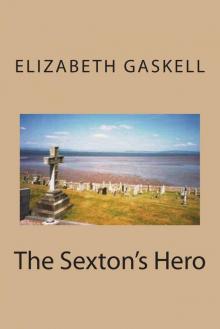 Sexton's Hero
Sexton's Hero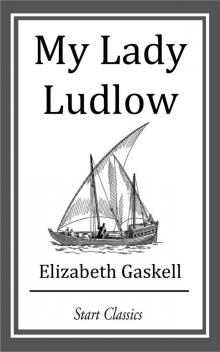 My Lady Ludlow
My Lady Ludlow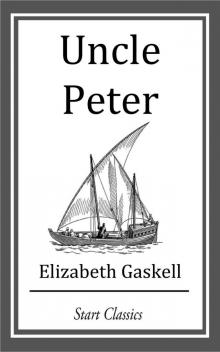 Uncle Peter
Uncle Peter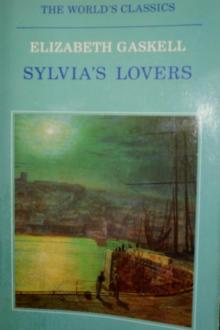 Sylvia's Lovers Elizabeth Cleghorn Gaskell
Sylvia's Lovers Elizabeth Cleghorn Gaskell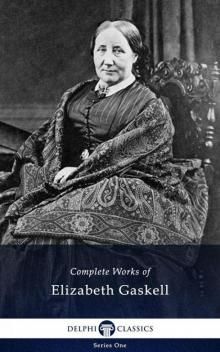 Delphi Complete Works of Elizabeth Gaskell
Delphi Complete Works of Elizabeth Gaskell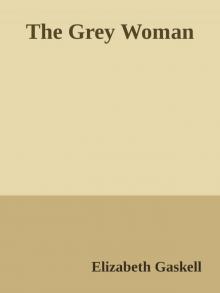 The Grey Woman
The Grey Woman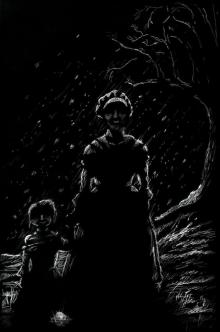 The Old Nurse's Story and Other Tales
The Old Nurse's Story and Other Tales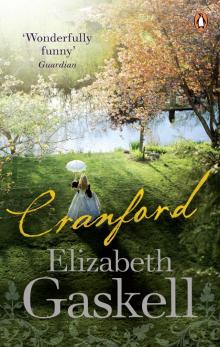 Cranford
Cranford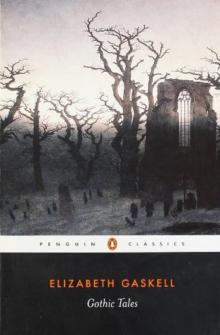 Gothic Tales
Gothic Tales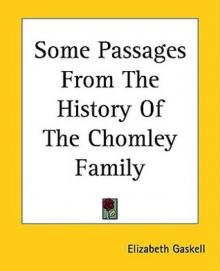 Some Passages From the History of the Chomley Family
Some Passages From the History of the Chomley Family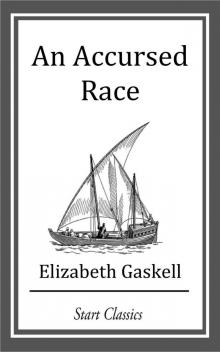 An Accursed Race
An Accursed Race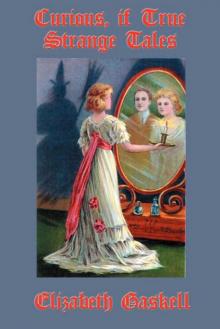 Curious, if True: Strange Tales Elizabeth Cleghorn Gaskell
Curious, if True: Strange Tales Elizabeth Cleghorn Gaskell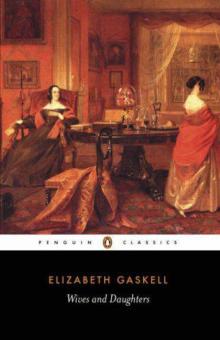 Wives and Daughters
Wives and Daughters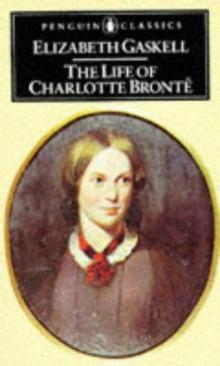 The life of Charlotte Brontë
The life of Charlotte Brontë